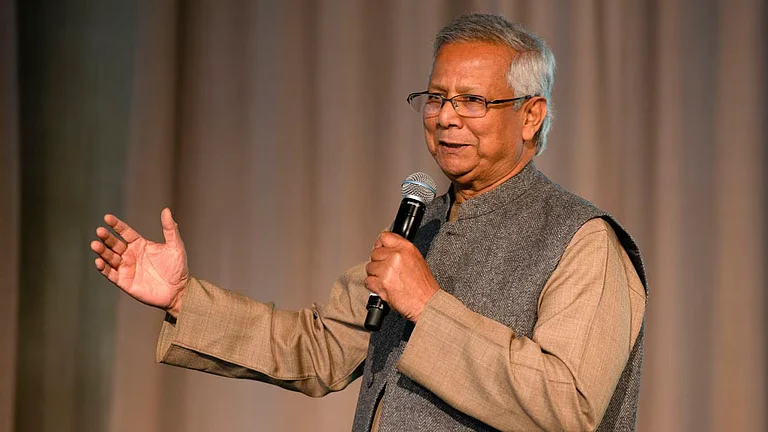The Supreme Court on Friday refused to stay the forced deportation of 43 Rohingya people saying that the reliefs sought for Rohingyas had previously been referred to a three-Judge bench under the Chief Justice of India’s orders.
Supreme Court Refuses To Stay Forced Deportation Of Rohingyas; Says Three-Judge Bench Apprised Of Case Should Hear Matter
The apex court said that it needed more evidence to be swayed by the petitioner's plea
“Having regard to a self-speaking order dated 08.04.2021 passed by a coordinate Bench comprising three judges in I.A. No.38048/2021, the prayer for interim directions was declined. The main case is now listed before the three-Judge Bench on 31.07.2025.”
The court was hearing a petition filed by Senior Advocate Colin Gonsalves and the Human Rights Law Network that contended that Delhi police had rounded up 38-43 Rohingya refugees and sent them to Port Blair in Andaman and Nicobar islands from where they were taken to international waters near Myanmar and dropped into the sea.
“There is so much going on in the country and you are bringing us this from social media,” Justice Surya Kant had questioned Gonsalves.
In reply, the senior advocate pointed out that the petitioners were ready to submit their phones on which they had gotten calls from deported family members corroborating the facts filed in the petition. “We will surrender our phones and also the audio voice recordings, the Union of India has the means to verify the location from which the calls came,” said Gonsalves.
The court then said that it was not convinced by the filings before it. Gonsalves then pointed out that the United Nations, which has an office in Myanmar, had issued a report regarding the Rohingyas allegedly deported by Indian authorities. “They have said this is a very credible report and have launched an inquiry,” Gonsalves said in an attempt to sway the court.
However, the bench comprising of Justices Surya Kant and Nongmeikapam Kotiswar refused to take into account the telephonic evidence and the UN inquiry report. “We find it extremely difficult to be swayed by what the petitioners have alleged. There is absolutely no material on record to substantiate the vague, evasive, and sweeping averments made in the writ petition. Unless the bald allegations are supported with some prima facie material, it is difficult for us to sit over the interim order passed by a larger Bench on 08.05.2025 and indulge in any roving enquiry.
The case was posted for hearing on July 31, 2025.
The court also directed the petitioners to “submit a copy of the paperbook to the offices of the learned Attorney General for India and the learned Solicitor General of India to enable them to have appropriate instructions from the Authorities of the Government of India.”
On May 10, the petitioners filed for an urgent hearing alleging that the police picked up the Rohingyas in vans and buses from various locations including Utham Nagar, Shaheen Bagh, and Vikaspuri around 8pm on May 8.
The cops kept the refugees in custody for 24 hours without filing any charges. Thereafter they were transferred to the Inderlok Detention Centre. “Authorities claimed (sic.) that biometric facilities were only available at that location and that the refugees would be released following the procedure,” says the petition. The detainees were never returned to their families.
The forty people were transported to airports and flown to Port Blair in the Andaman and Nicobar Islands. Later, they were forcibly put on naval ships with their hands tied and eyes blindfolded. They remained in that condition throughout the journey.
When the naval ship reached reaching the maritime border near Myanmar, the refugees — including children, women, the elderly, and individuals with serious health conditions such as cancer — “were thrown into international waters, effectively abandoned to die,” says the petition.

